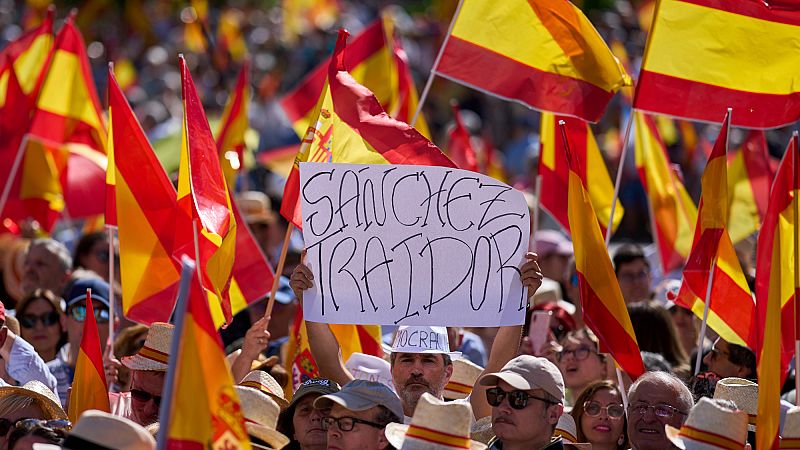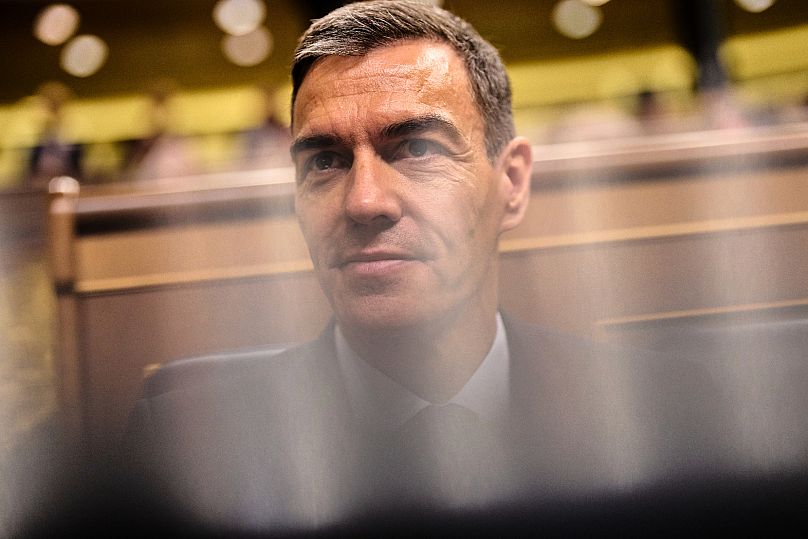
Spanish Prime Minister Pedro Sánchez's government has announced fresh plans to tackle corruption as the leader attempts to contain the political fallout from graft accusations against members of his Socialist Party.
The administration appears increasingly imperilled by a slew of allegations, with Sánchez facing pressure from his opponents to call a snap election.
In June, a Supreme Court judge ordered a former senior official, Santos Cerdán, to be held in pre-trial detention as part of a corruption inquiry.
As well as investigating allegations against Cerdán, who resigned earlier that month, the former Transport Minister Jose Luis Abalos and his aide Koldo Garcia, are also being probed after being accused of involvement in a plot to get kickbacks for awarding public works contracts.
All three deny the allegations.

The case involving Cerdán, who had served as the ruling Spanish Socialist Workers' Party's (PSOE) organisational secretary, is arguably the most serious in a series of scandals that have forced Sánchez to issue public apologies and deflect rivals' calls for his resignation.
In a speech on Wednesday, which he prefaced with an apology to parliamentarians and the public for the scandal, Sánchez said he would remain in his post, saying that while he had considered calling an election, he had decided against it.
"I won't throw in the towel. We're going to continue," he said.
The government on Wednesday announced 15 measures designed in conjunction with the Organisation for Economic Cooperation and Development's anti-corruption team and other partners that aim to root out graft.
The plan is split into five areas: risk prevention and bolstering measures against corruption; protecting whistleblowers; boosting the state's capacity to investigate and punish allegations; recovery of assets stolen through corruption; and creating a culture of integrity.
The specific measures include the creation of a new, independent watchdog on integrity, introducing artificial intelligence to the the public sector contracting platform to flag signs of fraud, the strengthening of independent audit requirements for political parties and enhancing transparency over political donations.
Whistleblowers are to receive guarantees of confidentiality and legal protection, while companies and public administrations will have to set up internal reporting channels.
Companies that have been convicted of corruption will be blacklisted from future government contracts, while sanctions against political parties will also be toughened.
The plan will also step up criminal penalties for graft, double the statutes of limitations for such cases and hike fines for firms convicted of corruption.
Sánchez has maintained that there will be no election until the scheduled vote in 2027.







